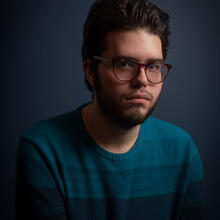The “dearth of campus ministry at community colleges” is one of the issues addressed in a report released in October by the U.S. Conference of Catholic Bishops, which also calls for “greater pastoral engagement of diverse populations” and an updated certification process for Catholic campus ministers.

The report, from the U.S. bishops’ Secretariat of Catholic Education, estimates that while the church has a pastoral presence on about one-fourth of the more than 3,000 four-year colleges and universities in the United States, it serves only about 1.6 percent of the nation’s 1,500 community colleges.
Better integration of two ministerial approaches is another issue of concern. Most campus ministers are degree-educated professionals, but a large number receive only missionary training and typically serve only one or two years. As the report’s authors state, “Their formation usually consists of several weeks of summer training.”

Survey responses suggest that the two types approach ministry differently. Degree-educated staff tend to emphasize public service and social justice, but missionary-trained staff are more likely to focus on students’ personal relationships with God.
The report’s authors note “the wide variation in formation among campus ministers and the ways in which this affects their experiences of campus ministry as well as their understanding of ministry more generally.”

While emphasizing “that no one model captures the fullness of the Catholic faith,” the authors say that “campus ministers must continue to improve and expand their competencies.” They conclude, “all campus ministers should be given educational access to foundational and ongoing training and formation necessary for responsible ministry in a campus setting.”
According to the report, most campus ministers are indeed open to receiving additional training. They rate “facilitating an encounter with Jesus,” “disciplining others in Christian living” and “accompanying people on their spiritual journey” as areas where they feel they have received effective formation but would like additional training. But though they rate their formation in “navigating diocesan and other institutional structures” and “creating and managing budgets” as subpar, they are less interested in receiving additional training in those areas.

The results of the survey were presented and discussed at a three-day symposium in October 2017 at the University of Notre Dame. That symposium submitted the following recommendations to the U.S.C.C.B.’s Committee on Catholic Education:
- Revise and update national standards for Catholic campus ministry facilitated by Catholic Campus Ministry Association.
- Update and redesign the certification process for campus ministers facilitated by C.C.M.A.
- Develop guidelines for the formation and ongoing professional development of Catholic campus ministers to be reviewed and approved by the Committee on Catholic Education.
- Create a diversity initiative to pursue ways of cultivating intercultural competence and greater pastoral engagement of diverse populations on campus.
- Create a community college initiative to explore innovative and creative means for providing pastoral presence and engagement at community colleges.
Source: “A National Study on Catholic Campus Ministry,” United States Conference of Catholic Bishops. The survey was sent to 1,911 Catholic campus ministers across the United States in 2017, and answers were received from 1,117 of them.









Those organization work for the students so everyone aims to give the best educational resources to the students and also help to their academic problems. Well, I hope this report will be work for the students and all decision is definitely true which has in the U.S conference. By the way, Our organization MBA assignment help is also working for the students who are helping their academic problems and we also support those firms who support the students.